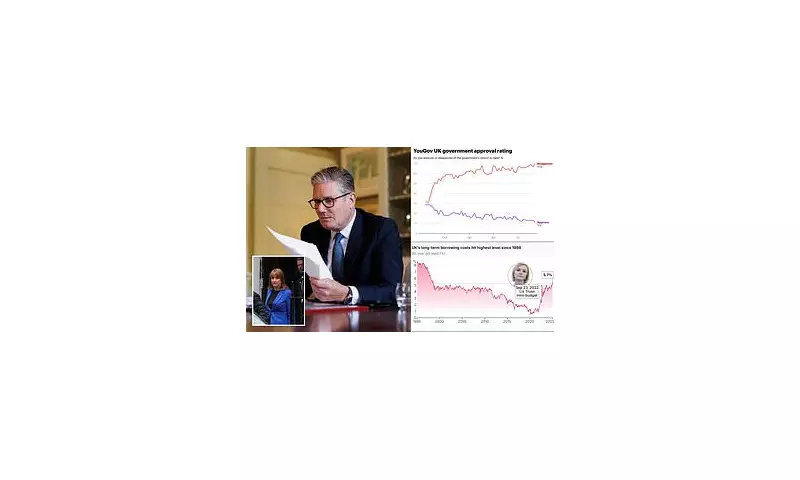
Sir Keir Starmer's fledgling government is facing an unprecedented collapse in public support, with exclusive polling revealing the most dramatic drop in popularity for any new administration in modern political history.
The Prime Minister's approval ratings have plummeted spectacularly since entering Downing Street, with Chancellor Rachel Reeves facing mounting criticism over her controversial borrowing plans that critics are already comparing to Margaret Thatcher's disastrous Poll Tax.
Polling Catastrophe for Labour
According to devastating YouGov data, public satisfaction with the Labour government has fallen off a cliff since their July election victory. The survey reveals that more voters now disapprove of Starmer's performance than approve—a remarkable reversal of fortune for a government barely two months into its term.
This represents the most dramatic early decline ever recorded for a new administration, surpassing even the rocky starts experienced by previous governments. The numbers paint a picture of a honeymoon period that never was, with voters turning on Labour at breakneck speed.
Reeves' Borrowing Blitz Backfires
At the heart of the government's troubles lies Chancellor Rachel Reeves' aggressive borrowing strategy. Her announcement that she intends to borrow £75.4 billion over the next five years—£22.4 billion more than previously forecast—has sent shockwaves through political and economic circles.
The Chancellor defended her approach during a combative appearance on the BBC's Today programme, insisting the additional borrowing was essential for driving economic growth. However, critics have been quick to draw parallels with the Conservative's Poll Tax disaster, warning of similar political consequences.
Birthday Blues for Starmer
The polling nightmare comes as Sir Keir celebrated his 62nd birthday, though there was little cheer to be found in Westminster. The survey results show:
- Net satisfaction with the government has fallen to -17 points
- Starmer's personal approval rating has dropped 19 points since July
- The government's popularity has declined more rapidly than any previous administration
- Economic confidence remains stubbornly low despite government assurances
Political Earthquake in the Making
Westminster insiders are describing the polling data as nothing short of catastrophic for Labour. The speed of the decline suggests voters are rapidly losing patience with the new government's direction, particularly on economic matters.
The comparison to the Poll Tax—which ultimately contributed to Thatcher's downfall—will particularly alarm Labour MPs who remember the political carnage that followed that policy's introduction. With Reeves showing no signs of changing course, the government appears to be betting everything on their economic strategy paying off before the next election.
As the political storm intensifies, all eyes will be on whether Starmer and Reeves can weather this early crisis or whether they're facing a rebellion that could define their time in government.





